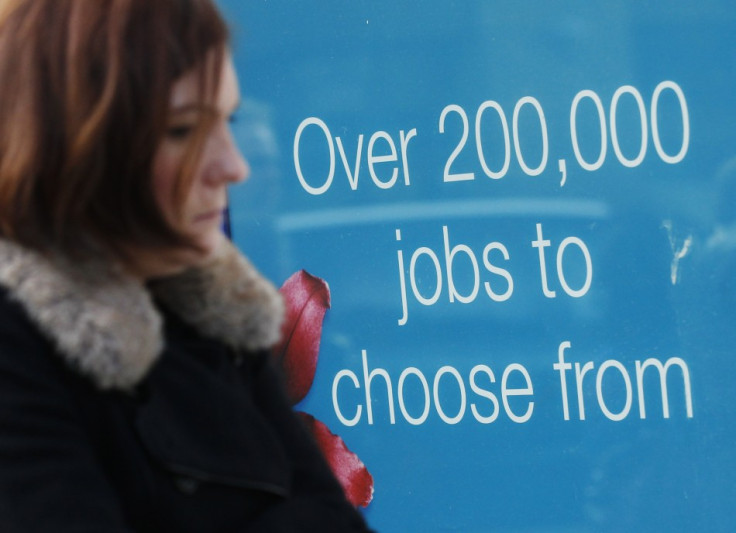UK Unemployment Falls to 7.9% as Labour Market Continues to Defy Recession [VIDEO]

The UK's unemployment rate fell again in the three months ending in August and the number of Britons claiming jobless benefits declined last month as the nation's labour market continued to confound experts and contradict the overall weakness of the economy and the lingering recession.
The number of Britons in work rose to a record high 29.59 million after an increase of 212,000 new jobs, the Office for National Statistics reported Wednesday. The official unemployment rate fell to 7.9 percent - the lowest in more than a year - after a surprise decline of 4,000 in the number of people in Britain seeking jobless benefits for the month of September.
On a three month basis, the number of Britons out of work fell by 50,000 to 2.53 million while youth unemployment fell below the 1 million mark for the first time in 12 months, the ONS data showed.
"It's a real landmark to see more people in work than ever before," UK Employment Minister Mark Hoban said. "Despite the tough economic times, the private sector continues to create jobs and our welfare reforms are encouraging people to return to work - with 170,000 fewer people on the main out-of-work benefits than in May 2010."
The labour market data continues to contrast sharply with the disappointing state of the UK economy as it struggles to reverse the steepest double-dip recession in at least a generation.
The quandary has also given the Bank of England and its Monetary Policy Committee cause for concern as policy makers debated the need to extend its programme of quantitative easing during its last interest rate setting meeting, minutes published Tuesday indicated.

While all nine members of the MPC voted to keep the bank's key lending rate unchanged at a record low 0.5 percent and to hold the current QE programme at £375bn, "there were some differences of view between members about the outlook and the likelihood that further easing would be required," the Bank's minutes said.
Average weekly earnings - excluding bonuses - grew by 2 percent for the three month period ending in August, largely in line with economists' forecasts but still lagging the pace of UK inflation, which slowed to 2.2 percent on an annual basis last month.
Together with the view that UK consumer prices will likely accelerate in the near term as domestic home energy prices rise, the need to entice lagging economic growth with looser monetary policy needs to be offset by concerns that it could stoke headline and core inflation far beyond the Bank's preferred 2 percent target, which it has failed to meet for nearly three years.
"Some members felt that there was still considerable scope for asset purchases to provide further stimulus. Other members, ... questioned the magnitude of the impact that lower long-term yields on corporate debt and equity would have on the broader economy," the minutes said.
© Copyright IBTimes 2025. All rights reserved.





















